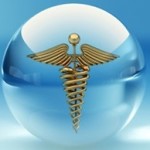Planning your pregnancy
Please click the link to go to our Pregnancy Care Planner Page: Pregnancy
Child Health 0 - 5 years
Routine Childhood Immunisation Schedule
Here’s a checklist of the vaccines that are routinely offered to everyone in the UK for free on the NHS, and the age at which you should ideally have them.
Living Well: Childhood Immunisation Leaflet
Childrens Health
There is a good guide on the NHS website which describes various conditions affecting children. There is advice on how to diagnose them, how to treat them and if further advice should be consulted.
When Should I Worry?
Having an ill child can be a very scary experience for parents. If you understand more about the illness it can help you to feel more in control. This booklet is for parents (and older children) and deals with common infections in children who are normally healthy.
NHS Choices Conditions and Treatments
See the NHS Choices Conditions and Treatments browser for an in-depth description of many common health issues.
These links all come from trusted resources but if you are unsure about these or any other medical matters please contact your doctor or pharmacist for advice
Child Health 6 - 15 years
Routine childhood immunisation
When Should I Worry?
Having an ill child can be a very scary experience for parents. If you understand more about the illness it can help you to feel more in control. This booklet is for parents (and older children) and deals with common infections in children who are normally healthy.
There is a good guide on the NHS website which describes various conditions affecting children. There is advice on how to diagnose them, how to treat them and if further advice should be consulted.
Fevers
Most symptoms of a fever in young children can be managed at home with infant paracetamol. If the fever is very high, they may have an infection that needs treating with antibiotics.
Head Lice
Head lice are insects that live on the scalp and neck. They may make your head feel itchy. Although head lice may be embarrassing and sometimes uncomfortable, they don’t usually cause illness. However, they won’t clear up on their own and you need to treat them promptly
Nosebleeds
Nosebleeds (also known as epistaxis) are fairly common, especially in children, and can generally be easily treated.
NHS Choices Conditions and Treatments
See the NHS Choices Conditions and Treatments browser for an in-depth description of many common health issues.
These links all come from trusted resources but if you are unsure about these or any other medical matters please contact your doctor or pharmacist for advice
Men
Mens’ Health
Five health symptoms men should not ignore:
“British men are paying the price for neglecting their health: more than 100,000 men a year die prematurely.
On average, men go to their GP half as often as women. It’s important to be aware of changes to your health, and to see your GP immediately if you notice something that’s not right.”
Prostate Cancer
Each year about 36,000 men in the UK are diagnosed with prostate cancer, making it the most common cancer in men. It mainly affects men aged over 50.
Symptoms
- difficulty in starting to pass urine
- a weak, sometimes intermittent flow of urine
- dribbling of urine before and after urinating
- a frequent or urgent need to pass urine
- rarely, blood in your urine or semen and pain when passing urine
These symptoms aren’t always caused by prostate cancer but if you have them, see your GP.
Find out more about the symptoms, causes and diagnosis of prostate cancer by using the resources below.
Resources
Testicular Cancer
Testicular cancer, though the most common cancer in young men, it is still quite rare. With 2000 new cases being diagnosed each year, this makes it the biggest cause of cancer related death in 15 – 35-year-old males. It accounts for around 70 deaths a year within the UK alone.
What to Look Out For
The most common symptom of testicular cancer is swelling or a pea-sized lump in one of the testes (balls). There is no current screening test therefore it is important that you look out for the following signs and symptoms.
- A dull ache, or sharp pain, in your testicles, or scrotum, which may come and go
- A feeling of heaviness in your scrotum
- A dull ache in your lower abdomen
- A sudden collection of fluid in your scrotum
- Fatigue, and generally feeling unwell.
Resources
Women
Cervical Screening (Smear Tests)
Cervical screening is a method of preventing cervical cancer by detecting abnormal cells in the cervix (lower part of the womb). Cervical screening is not a test for cancer, but it is a test to check the health of the cervix.
Most women’s test results show that everything is normal. But for one in 20 women, the test will show some changes in the cells of the cervix. Most of these changes will not lead to cervical cancer and the cells will go back to normal on their own. In some cases, the abnormal cells need to be treated to prevent them becoming a problem later.
NHS – Cervical Screening
The why, when & how guide to cervical screening
Cervical Screening
This factsheet is for women who would like information about having a cervical smear test for screening. This means having the test when you don’t have any symptoms.
HPV Vaccination
Since September 2008 there has been a national programme to vaccinate girls aged 12-13 against human papilloma virus (HPV). There is also a three-year catch up campaign that will offer the HPV vaccine (also known as the cervical cancer jab) to 13-18 year old girls.
The programme is delivered largely through secondary schools, and consists of three injections that are given over a six-month period. In the UK, more than 1.4 million doses have been given since the vaccination programme started.
What is Human papilloma virus (HPV)?
Human papilloma virus (HPV) is the name of a family of viruses that affect the skin and the moist membranes that line your body, such as those in your cervix, anus, mouth and throat. These membranes are called the mucosa.
There are more than 100 different types of HPV viruses, with about 40 types affecting the genital area. These are classed as high risk and low risk.
How you get HPV?
Types of HPV that affect the skin can be passed on by skin contact with an affected person. The types of HPV that affect the mouth and throat can be passed on through kissing. Genital HPV is usually spread through intimate, skin to skin, contact during sex. You can have the genital HPV virus for years and not have any sign of it.
How HPV can cause cervical cancer?
Most HPV infections are harmless or cause genital warts, however some types can cause cervical cancer. Most HPV infections clear up by themselves, but in some people the infection can last a long time. HPV infects the cells of the surface of the cervix where it can stay for many years without you knowing.
The HPV virus can damage these cells leading to changes in their appearance. Over time, these changes can develop into cervical cancer. The purpose of cervical screening (testing) is to detect these changes, which, if picked up early enough, can be treated to prevent cancer happening. If they are left untreated, cancer can develop and may lead to serious illness and death.
Cancer Research UK
HPV Facts and information
NHS – HPV Vaccination
Why, how and when is the vaccination given and what are the side effects
HPV Vaccine
This factsheet is for people who would like information about the human papilloma virus (HPV) vaccine.
Breast Cancer
Breast cancer is the most common cancer in the UK. About 46,000 women get breast cancer in the UK each year. Most of them (8 out of 10) are over 50, but younger women, and in rare cases men, can also get breast cancer.
The NHS Breast Screening Programme invites over 2 million women for screening every year, and detects over 14,000 cancers. Dr Emma Pennery of Breast Cancer Care says: “Breast X-rays, called mammograms, can detect tumours at a very early stage, before you’d feel a lump. The earlier it’s treated, the higher the survival rate.”
Find out more about breast cancer screening
Macmillan Cancer Research
The causes and symptoms of breast cancer in women and explains how it is diagnosed and treated
These links all come from trusted resources but if you are unsure about these or any other medical matters please contact your doctor or pharmacist for advice
Seniors
Seasonal Flu Vaccination
Influenza – flu – is a highly infectious and potentially serious illness caused by influenza viruses. Each year the make-up of the seasonal flu vaccine is designed to protect against the influenza viruses that the World Health Organization decide are most likely to be circulating in the coming winter.
Regular immunisation (vaccination) is given free of charge to the following at-risk people, to protect them from seasonal flu:
- people aged 65 or over,
- people with a serious medical condition
- if you are pregnant
- people living in a residential or nursing home
- the main carers for an elderly or disabled person whose welfare may be at risk if the carer becomes ill
- healthcare or social care professionals directly involved in patient care
Eating Well & Exercise – helping you maintain a healthy body
We’re bombarded with scare stories about weight, from size zero to the obesity ‘epidemic’. But a healthy body is determined by different factors for each of us.
These links all come from trusted resources but if you are unsure about these or any other medical matters please contact your doctor or pharmacist for advice.
Sexual Health
Both men and women need to look after their sexual health and take time to understand the issues that surround contraception and sexually transmitted infections (STIs).
For instance there are some STIs, like chlamydia, that you could be carrying without having any symptoms. This infection can affect fertility, so it’s important to make use of the sexual health services available for free on the NHS.
Useful Resources:
Sexually Transmitted Infections
Issues, symptoms and treatments
Sexual Health FAQs
Expert answers from a qualified Doctor
Here you’ll find tips for a fulfilling sex life plus advice on STDs, contraception and common sex problems.
FPA – The Sexual Health Charity
Sexual health advice and information on contraception, sexually transmitted infections, pregnancy choices, abortion and planning a pregnancy.
Contraception
There are so many different types of contraception available that you should be able to find the right method. You may have to try several different things before you choose the one you like most.
Useful Resources
Contraception – NHS Choices
Information on Contraception from NHS Choices including why, when and how it should be used and with links to other useful resources.
Chlamydia
Chlamydia is the most commonly diagnosed sexually transmitted infection among under-25s. Often there are no symptoms, but testing and treatment are simple.
Causes and risk factors Chlamydia is usually passed from one person to another during vaginal, oral or anal sex, or by sharing sex toys. It can live inside cells of the cervix, urethra, rectum and sometimes in the throat and eyes.
These links all come from trusted resources but if you are unsure about these or any other medical matters please contact your doctor or pharmacist for advice

